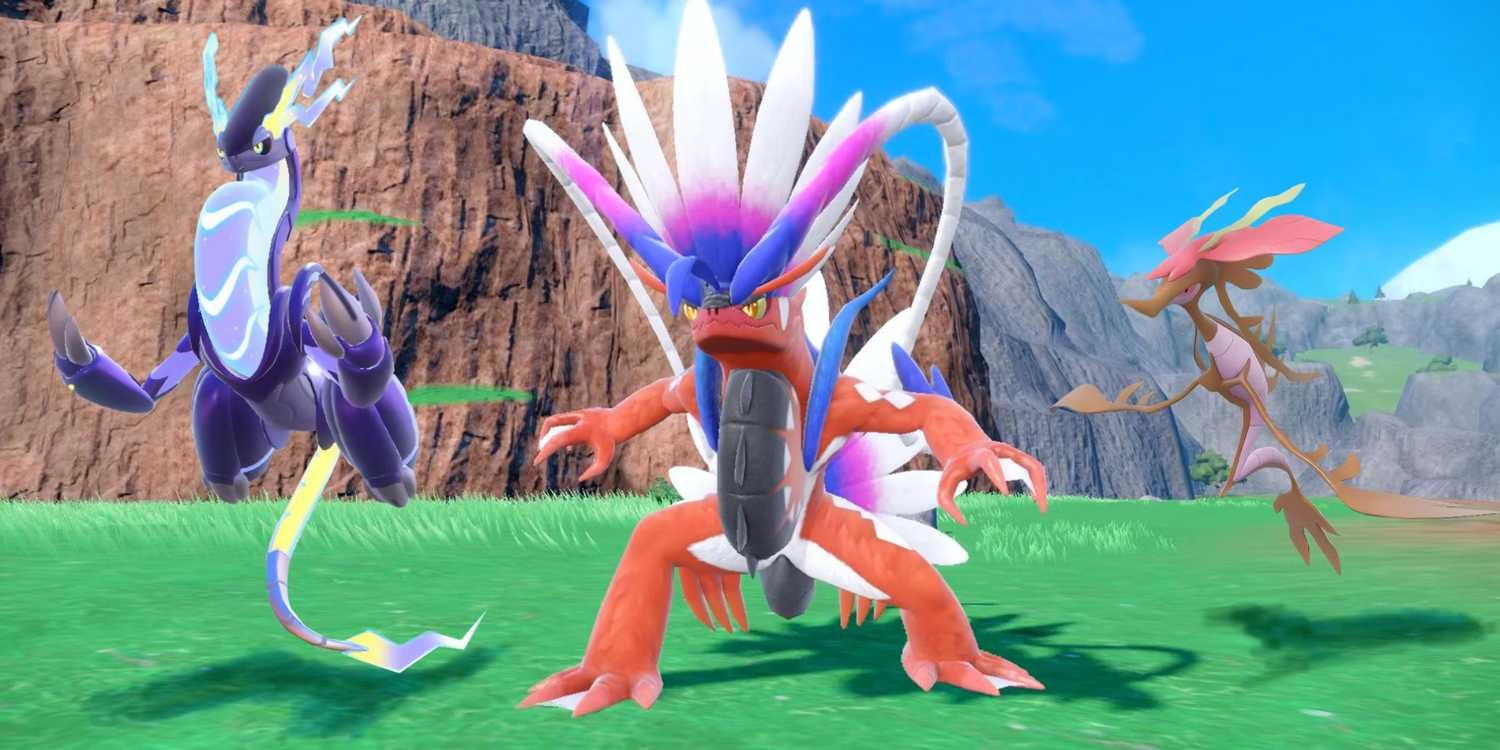Exclusivity Backfires: GameStop’s Shiny Legendary Pokémon Giveaway Plagued by Scarcity, Scalpers, and Retailer Misinformation
Popular Now
 Genshin Impact
Genshin Impact
 Toca Boca World
Toca Boca World
 Candy Crush Saga
Candy Crush Saga
 God of War Ragnarök
God of War Ragnarök
 PUBG Mobile
PUBG Mobile
 Geometry Dash
Geometry Dash
 Among Us
Among Us
 Warframe
Warframe
 Stumble Guys
Stumble Guys
 Roblox
Roblox 
 UNITED STATES & GLOBAL: The latest in-store distribution event for Pokémon Scarlet and Violet, offering the coveted, previously Shiny-locked Legendary Pokémon Shiny Koraidon and Shiny Miraidon, has devolved into a chaotic disaster within hours of launch. Partnering with retailers like GameStop in the U.S. and EB Games in other regions, The Pokémon Company’s attempt at a free, physical distribution has been thoroughly undermined by extreme scarcity, widespread scalping, and inconsistent information from store employees, leaving a massive portion of the dedicated fanbase empty-handed and furious.
UNITED STATES & GLOBAL: The latest in-store distribution event for Pokémon Scarlet and Violet, offering the coveted, previously Shiny-locked Legendary Pokémon Shiny Koraidon and Shiny Miraidon, has devolved into a chaotic disaster within hours of launch. Partnering with retailers like GameStop in the U.S. and EB Games in other regions, The Pokémon Company’s attempt at a free, physical distribution has been thoroughly undermined by extreme scarcity, widespread scalping, and inconsistent information from store employees, leaving a massive portion of the dedicated fanbase empty-handed and furious.
The event, which was scheduled to run from September 26 to mid-October, has essentially collapsed within the first few days, reigniting a long-standing controversy over the continued use of limited, in-person promotions in the modern gaming era.
***
The Core of the Crisis: Limited Codes and Instant Sell-Out
The primary point of failure for the Shiny Koraidon and Miraidon giveaway was a critical miscalculation in code allocation. Reports from GameStop employees across the country suggest that some locations received a painfully low stock, in some cases as few as 50 code cards for the entire three-week promotion. For a game like Pokémon Scarlet and Violet, which has sold tens of millions of copies, this supply was dramatically insufficient, leading to an immediate and predictable outcome:
- First-Day Scarcity: Many GameStop stores ran out of the promotional codes within the first hour of opening on day one. Players who had to work or couldn’t queue before the store opened were instantly locked out of the event.
- The Scalper Effect: The limited physical codes created instant artificial rarity, providing a lucrative opportunity for scalpers—a group already highly active in the Pokémon TCG market. Codes intended to be free are now being listed and sold on platforms like eBay for prices ranging from $10 to $40 and higher. This blatant exploitation of a free community event has triggered mass complaints to The Pokémon Company International (TPCi).
- TCG Concurrency: The distribution launch coincided with the release of the new Pokémon TCG set, Mega Evolution. This unfortunate timing meant that massive crowds, primarily consisting of TCG resellers lining up for card product, also scooped up the free game codes, further compounding the scarcity for legitimate players.
The official Pokémon website clearly states, “No purchase required,” but numerous reports indicate that some GameStop staff were allegedly attempting to enforce a minimum purchase—in some cases up to $25—or requiring customers to buy a Pro Membership to receive the free code, adding retailer confusion and friction to an already fraught situation.
***
 The Digital Distribution Debate: A Better Path Forward
The Digital Distribution Debate: A Better Path Forward
The resounding failure of this in-person event has once again galvanized the Pokémon community to demand a permanent shift to digital distribution for future rare Pokémon. The logistical nightmares, regional restrictions, and prevalence of scalping that define physical giveaways are entirely bypassed by modern online distribution methods.
- Online Convenience: Previous, highly successful distributions, such as the recent Shiny Treasures of Ruin Legendary event, were conducted entirely through Mystery Gift via the internet. This method ensures that every player globally with a copy of Scarlet or Violet can participate without geographical or time-of-day barriers.
- Combating FOMO (Fear of Missing Out): Limited physical giveaways feed into player FOMO, pressuring players to rush to stores and compete with resellers. A simple Mystery Gift code or an internet-based event allows all members of the core fanbase to obtain the content in a fair manner.
Fans have organized mass campaigns, directing links to TPCi’s support pages, urging the company to acknowledge the widespread issues and retroactively implement a digital distribution for the Shiny Koraidon and Miraidon codes to mitigate the damage caused by the current situation.
***
The Future of Pokémon Exclusivity and Competitive Gaming
The Legendary Pokémon in question—Koraidon and Miraidon—are crucial figures in the game’s narrative and highly desirable in the competitive Pokémon VGC scene. The fact that their exclusive Shiny forms are locked behind such a flawed event is particularly frustrating for the eSports and hardcore player base.
- The distribution itself is version-locked: Shiny Miraidon is redeemable in Scarlet, and Shiny Koraidon in Violet. To obtain both, players must either own both games or rely on the game’s trading system and the aforementioned troubled codes, further fueling the need for the free items that are now being scalped.
As The Pokémon Company moves towards the launch of its next major title, Pokémon Legends: Z-A, the persistent issues surrounding distribution events serve as a critical warning. The limited-time, in-store giveaway model is outdated, anti-consumer, and actively punishes the dedicated players who are the lifeblood of the Pokémon franchise. The community is now waiting to see if TPCi will take decisive action to correct this distribution fiasco or allow the scalpers to continue profiting at the expense of its most loyal customers.







